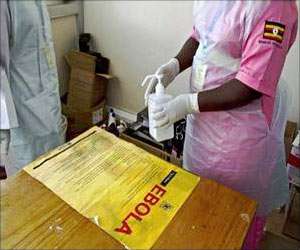WHO received $100 million and a new emergency workforce comprising of new logisticians, medical anthropologists and experts in risk communication.

Participants at the world’s biggest public health gathering, which brought together 3,000 delegates, also approved WHO plans for deep reforms to respond better to future crisis.
This "will be guided by an all-hazards health emergency approach, that emphasizes adaptability, flexibility and accountability, humanitarian principles, predictability, timeliness and country ownership," a statement said. The new program will also coordinate a new global health emergency workforce, called for during a rare emergency session of WHO’s executive board in January.
The skills of WHO’s emergency staff will also be boosted with the addition of logisticians, medical anthropologists and experts in risk communication. The measures came as the WHO warned that the Ebola outbreak was far from over and could persist throughout the course of the year.
Although Liberia was recently declared Ebola-free, neighboring Sierra Leone and Guinea were miles away from that status, Bruce Aylward, WHO’s Assistant Director for Emergencies, told reporters. He said the target "in a best case scenario" would be September, but this was not the case as the two countries also had to face the region’s torrential rainy season, which would greatly hamper Ebola fire-fighting efforts.
Aylward said there was a huge gap in funding with WHO being forced to drastically slash its budget from March until the year’s end from $350 million as it had received only about $150 million so far.
Source-Medindia
 MEDINDIA
MEDINDIA




 Email
Email





